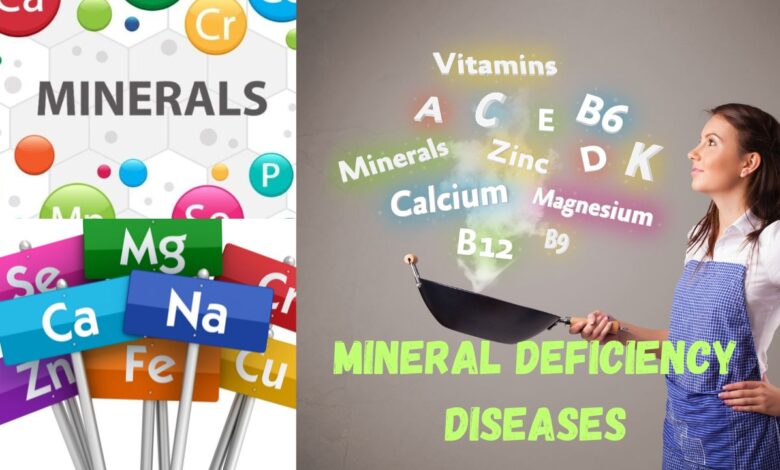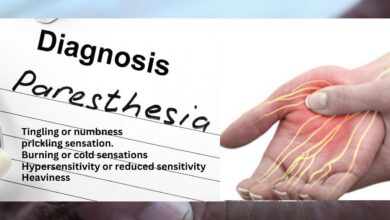Role of Minerals in Human Body” incorporating mineral deficiency diseases

Introduction
As we all know, minerals are one of the most important elements responsible for our overall health. Minerals act like a magic nutrient in our body which is responsible for several body functions such as nerve function, bone formation, and even energy production in the body.
In this article, we are going to discuss the role of minerals in the human body and its importance. As well as, we will also discuss mineral deficiency diseases in the body. So without any further ado, let’s jump into the article.
What is mineral?
Minerals are the inorganic compounds found in water and soil that we consume through the food we eat. It is a vital ingredient responsible for our bodily functions. These are naturally occurring compounds and can be found in plants, seeds, soil, and sometimes we consume it as a supplement.
Types of minerals?
There are basically two types of minerals:
- Macrominerals: The macrominerals are the minerals that can be consumed in the body in huge amounts. There are numerals macrominerals like Potassium, Sulphur, Chloride, Magnesium, Phosphorus, and Calcium.
- Trace Minerals: The minerals which are required in small amounts are known as Trace minerals. Trace minerals include several nutrients like Zinc, Iron, Iodine, Copper, Fluoride, Selenium, Cobalt, Copper, and Manganese.
Role Of Minerals In Human Body
Minerals brings our overall health to the best level and is involved in several physiological process:
Nerve Production
Minerals are very important elements responsible for nerve production. To transmit nerve impulses, you should take the mineral in the form of Calcium, Sodium, and Potassium.
Energy Production
Yes, Minerals can help in energy production. If you are suffering from tiredness, fatigue, or lack of energy then take magnesium minerals which helps to convert your food into energy.
Bone Health
The minerals are responsible for providing structure and strength to the bone. Minerals like calcium and phosphorus are good for your bone health.
Importance of Minerals For Your Overall Health
Minerals are vital ingredients for the human body function. Without proper mineral intake, the body becomes unable to function properly which leads to various health issues. For example, Iron has the vital capability to develop haemoglobin which is a protein responsible for carrying blood cells throughout the body.
The lack of iron can cause anaemia, and lack of calcium in the body weakens bones. Every mineral has its own importance, so it’s essential to take minerals to the proper levels.
Mineral Deficiency Diseases
Mineral Deficiency Diseases occur in the body when it doesn’t get enough minerals. Here, we will discuss some of the mineral deficiency diseases and their health impacts:
Anaemia
Anaemia is the iron deficiency disease which results in a reduced number of red blood cells in your body that carry haemoglobin. It can cause weakness, fatigue, and even shortness of breath, so it’s vital to take the required amount of iron in the body. Iron deficiency is the major reason for anaemia but the deficiency of Vitamin B12 and folate can also be the reason.
Hypothyroidism
The Iodine deficiency can lead to hypothyroidism in the body. It is a disease where the thyroid gland does not produce the required amount of hormones and the thyroid gland is underactive. The iodine deficiency can lead to the enlargement of the thyroid gland known as goitre. Hypothyroidism can cause weight gain, depression, and fatigue.
Osteoporosis
The lack of vitamin D and calcium can lead to osteoporosis which results in weakened bones. It usually happens in adults and postmenopausal women which increases the risk of fractures. The bone related problems happen in this deficiency, hence one should take the proper amount of minerals.
Causes And Symptoms Of Each Disease
Anaemia
Anaemia is caused by insufficient iron absorption. The symptoms include shortness of breath, cold feet and hands, and dizziness.
Hypothyroidism
It is caused by the low levels of Iodine in the body. The symptoms of hypothyroidism include hair loss, sensitivity to cold, and dry skin.
Osteoporosis
Osteoporosis can be caused by the insufficient intake of Vitamin D and Calcium. The symptoms of this diseases are bone pain, stooped posture, and fracture.
Effects on overall health
Mineral deficiency can lead to chronic illnesses which are responsible for not having a quality life. Deficiencies like anaemia can reduce your productivity and osteoporosis may increase the risk of fractures, which is not a sign of good health and well-being. So if you are suffering from any deficiency then it’s vital to take the help of a healthcare professional immediately.
Specific Minerals And Their Roles
Iron
Iron helps to transport oxygen to the overall body and is crucial for red blood cells and energy.
Calcium
Calcium is the vital ingredient for muscle function and bone health. It is important for muscle contraction, and structure and hardness of teeth and bones.
Zinc
It supports immune function and wound healing. Zinc are vital minerals responsible for even Cell Division and DNA synthesis.
Potassium
Potassium is necessary for blood pressure regulation and heart health. It helps to maintain normal heart rhythm and helps muscles to function adequately. It is recommended to take enough potassium to avoid any immune related disorders.
Iodine
Iodine is important for growth development and thyroid function. It is a vital ingredient for brain development during pregnancy, and also helps to regulate metabolism in the body.
Prevention and Treatment of Mineral Deficiency Diseases
Dietary sources of essential minerals
- Iron: Found in beans, red meat, and lentils
- Calcium: It is found in leafy greens and dairy products.
- Zinc: It is found in seeds, meat, and shellfish.
- Potassium: Found in Bananas, Potato, and Spinach.
- Iodine: Found in dairy products, and seafood.
Supplements and fortified foods
Supplement intake can be important for some people who are suffering from mineral deficiency or health conditions that hinder mineral absorption in the body. There are fortified foods like plant based milk and cereals can help you to increase mineral intake in your body.
So If you are suffering from deficiency of minerals, then supplements and fortified foods can help you to get out of the illness.
Importance of balanced diet and healthy lifestyle
A well balanced diet consisting of vegetables, fruits, grains, proteins, and fats is essential for the consumption of enough minerals. Well, doing physical exercise, taking proper sleep, and getting involved in proper stress management can support the body’s ability to absorb minerals.
Apart from that, water is the vital ingredient responsible for the transportation of minerals throughout the body, hence taking enough water for a healthy well-being.
Conclusion
Minerals play a critical role in numerous physiological processes like supporting immune function and getting strong bones. Understanding the importance of minerals, their deficiency diseases, symptoms and treatment is necessary for having good health. Minerals are fundamental and essential ingredients for maintaining a healthy lifestyle. To have a well-balanced health and life, make sure to have a balanced diet rich in minerals. It will not only give you a healthy body, but also helps to prevent mineral deficiency illnesses.
Additional Resources
For further information regarding minerals, and how could you incorporate them in your regular diet, here are some additional resources for you:




